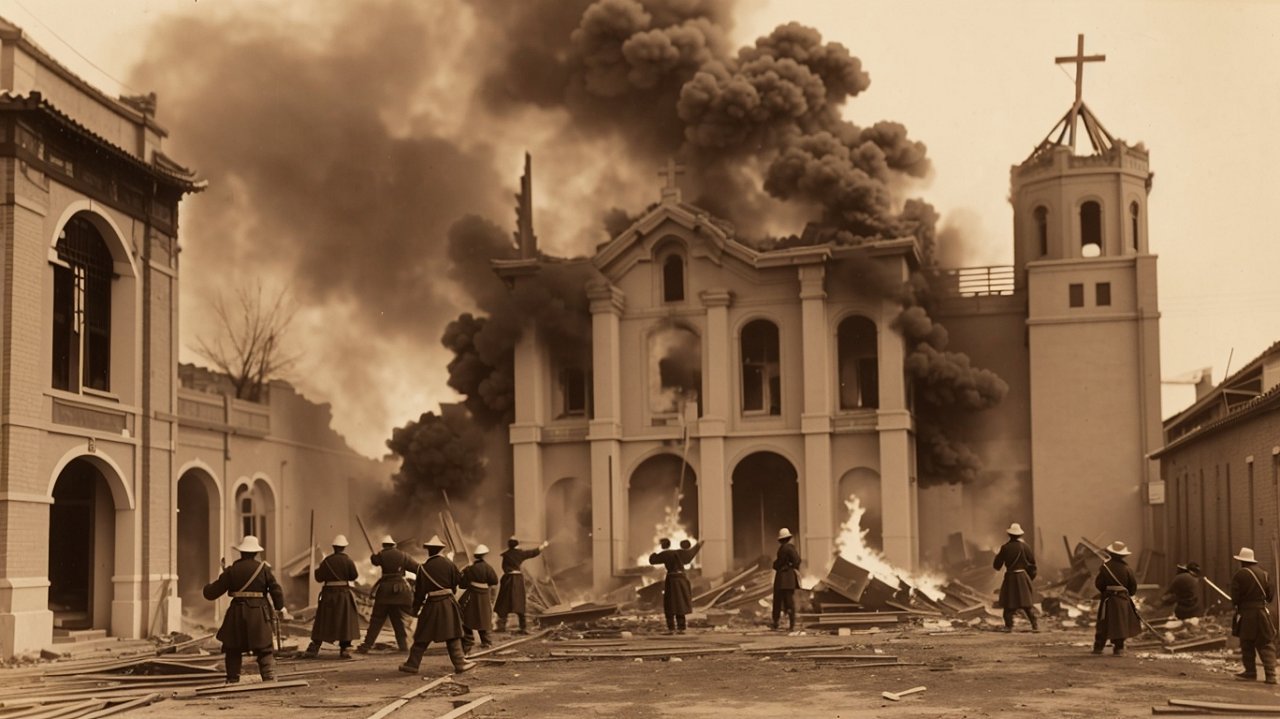
Internal and External Factors that Fueled the Boxer Rebellion
 Go Back - HOME | Latest Chinese History | Hokkien : Videos : Dictionary | YouTube | Facebook | About Me : Contact Me
Go Back - HOME | Latest Chinese History | Hokkien : Videos : Dictionary | YouTube | Facebook | About Me : Contact Me AI-generated sepia image of Boxers burning down a church building
AI-generated sepia image of Boxers burning down a church buildingExternal factors, primarily the actions of foreign powers in China, played a significant role in creating the conditions for the Boxer Rebellion. China had faced a series of defeats against foreign powers starting in the mid-19th century. This led to a series of unequal treaties, which eroded the Qing Empire's sovereignty by ceding territory, imposing extraterritoriality, and opening ports to Western traders and missionaries. The introduction of Christian missions further challenged local traditions by spreading foreign religious and cultural practices. Foreign-built railroads also disrupted traditional farming, compounding the economic consequences of these treaties.
Internal factors within China further exacerbated the situation. Floods in Shandong Province intensified poverty. Landless peasants and laborers found themselves increasingly marginalized and turned to secret societies for solace and solidarity. The Boxer movement, or Yihetuan, emerged from these circumstances. The Boxers, influenced by martial traditions and spiritual beliefs, aimed to resist foreign encroachments. Their anger extended to Chinese Christians who they viewed as collaborators with foreign powers. The Boxers' slogan, "Support the Qing, destroy the foreign," reflects their objective of purging foreign influence while preserving China's imperial structure.
The response of the Qing imperial court to the Boxers further demonstrates the interplay of internal and external factors. Empress Dowager Cixi, the de facto ruler, recognized the Boxers as both a threat and an opportunity. As anti-foreign sentiment grew and the Boxers gained support, Cixi began covertly endorsing their actions, hoping to leverage their movement against foreign domination.
The Boxer Rebellion was fueled by a complex interplay of internal and external factors. The sources describe how resentment against foreign powers' actions in China combined with internal issues like economic hardship and social unrest. This created a volatile environment that allowed the Boxer movement to gain traction and ultimately led to the rebellion.
 Latest updates on Penang Travel Tips
Latest updates on Penang Travel Tips

Copyright © 2003-2025 Timothy Tye. All Rights Reserved.